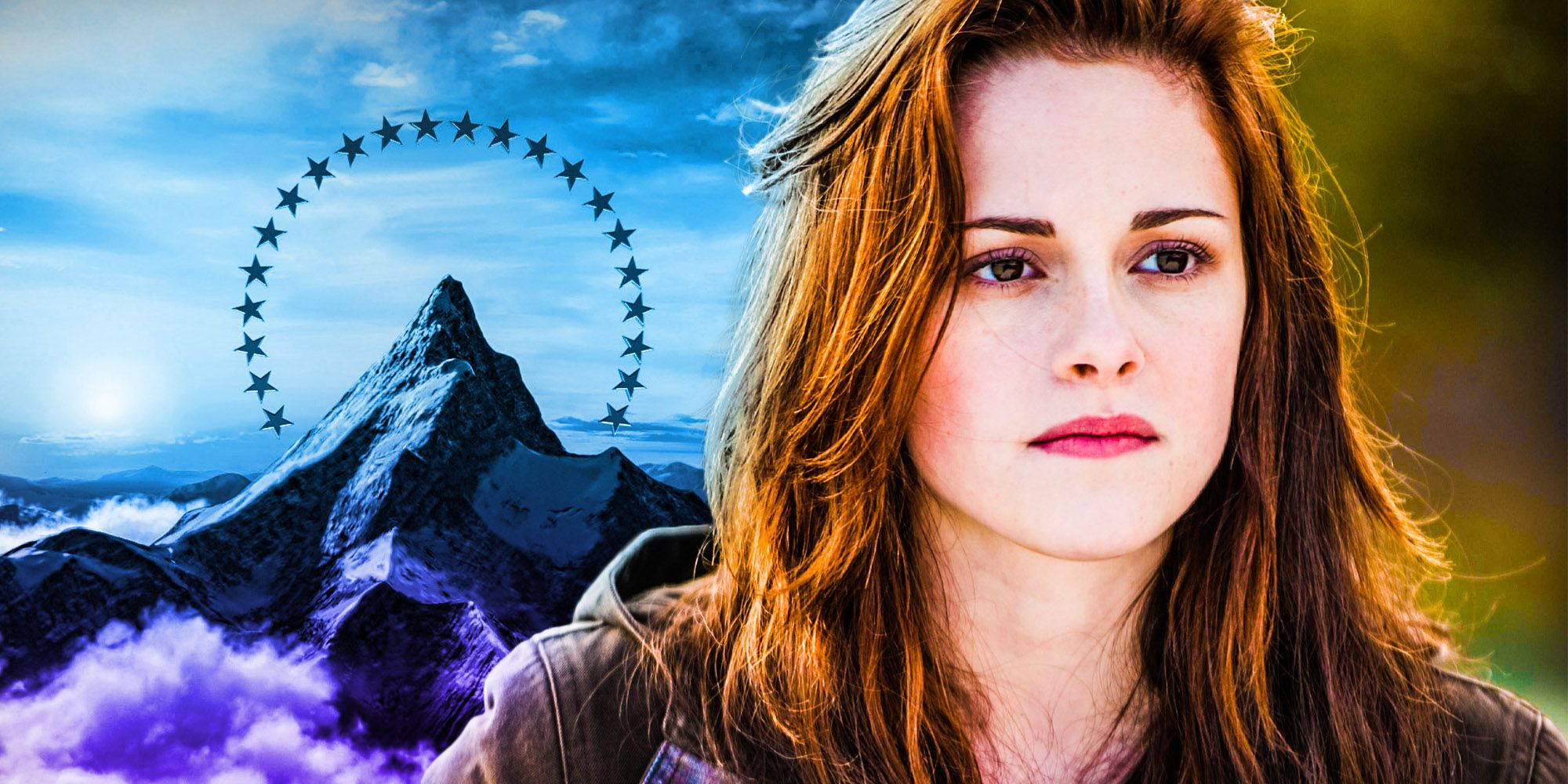
Paramount Pictures missed out on their chance to adapt Meyers’ Twilight saga to the screen — and fans should be thankful for that, judging by the scant information available on their proposed treatment. Released in 2008, Lords of Dogtown director Catherine Hardwicke’s Twilight was a huge success much like the novel series that the movie was adapted from, Stephenie Meyer’s bestselling teen paranormal romance saga of the same name.
Hardwicke may have departed the series after the first movie, but the Twilight movies continued to succeed at the box office throughout their next four installments (despite being dismissed by critics and even their stars). The Twilight movies were a cultural phenomenon throughout the late ’00s and into the early ’10s, with the simple story of small-town girl Bella Swan’s love of teen vampire Edward Cullen capturing the hearts of fans worldwide.
Although the Twilight movies cut a lot of backstory from the source novels to preserve their runtime, the film adaptations were largely true to the Twilight book series for the most part and kept most of what fans wanted to see. However, originally Paramount Pictures were set to bring Meyer’s books to the screen, with the studio’s treatment of Twilight being the script that got Hardwicke interested in working on the movies. Unlike the eventual Twilight movie adaptations, though, Paramount’s canceled Twilight movie would have diverged wildly from the original saga, adding everything from action sequences to major character deaths, to villainous jet-skiing vampires.
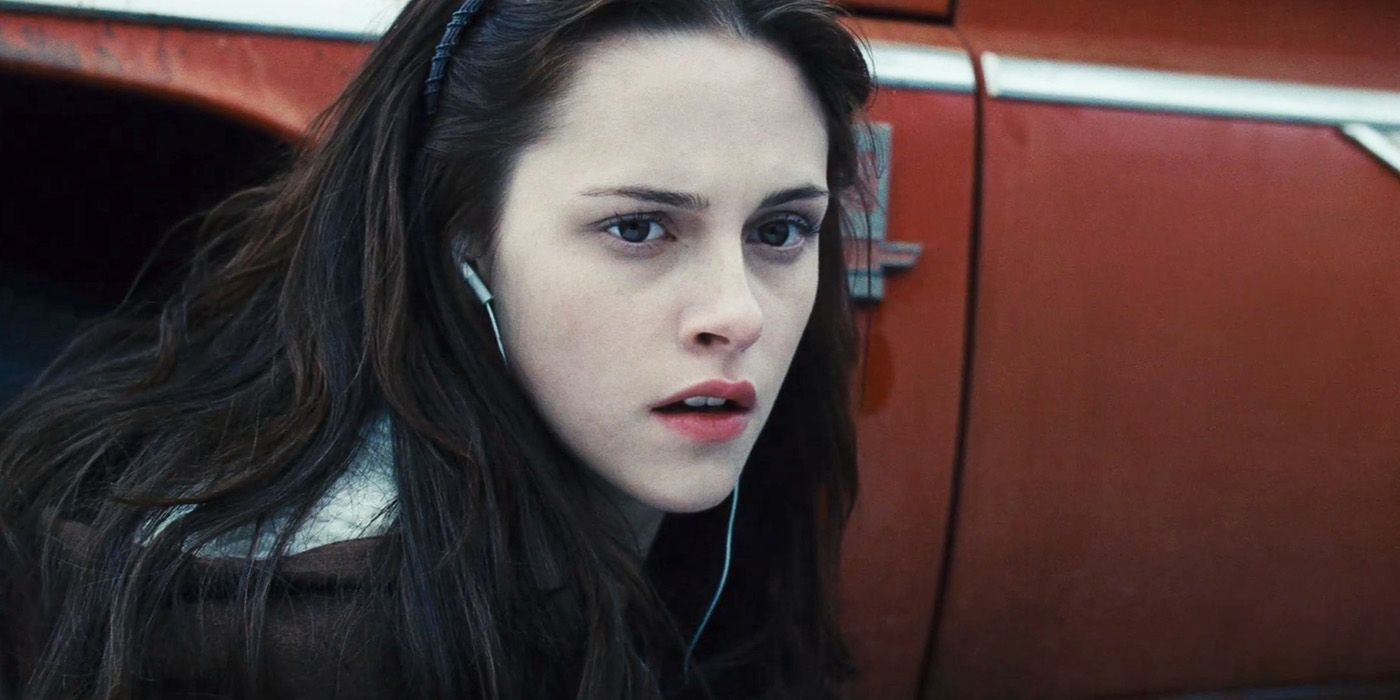
One of the more subtle changes that Paramount’s original script for Twilight’s movie adaptation made was turning the novel’s reserved everywoman heroine Bella into a sporting star. The original Twilight script opted to make Bella a track star, a seemingly small detail that soon evidenced just how much the script was “Twilight meets Charlie’s Angels”, to paraphrase Catherine Hardwicke. Although Bella’s status as a runner may seem immaterial in the grand scheme of the series, the original Twilight script made this change from the original novels so that Bella’s quick transformation into a full-blown action heroine would be (marginally) more believable and grounded. It was one of few believable changes made to the Twilight novels, unlike the addition of the FBI into the story.
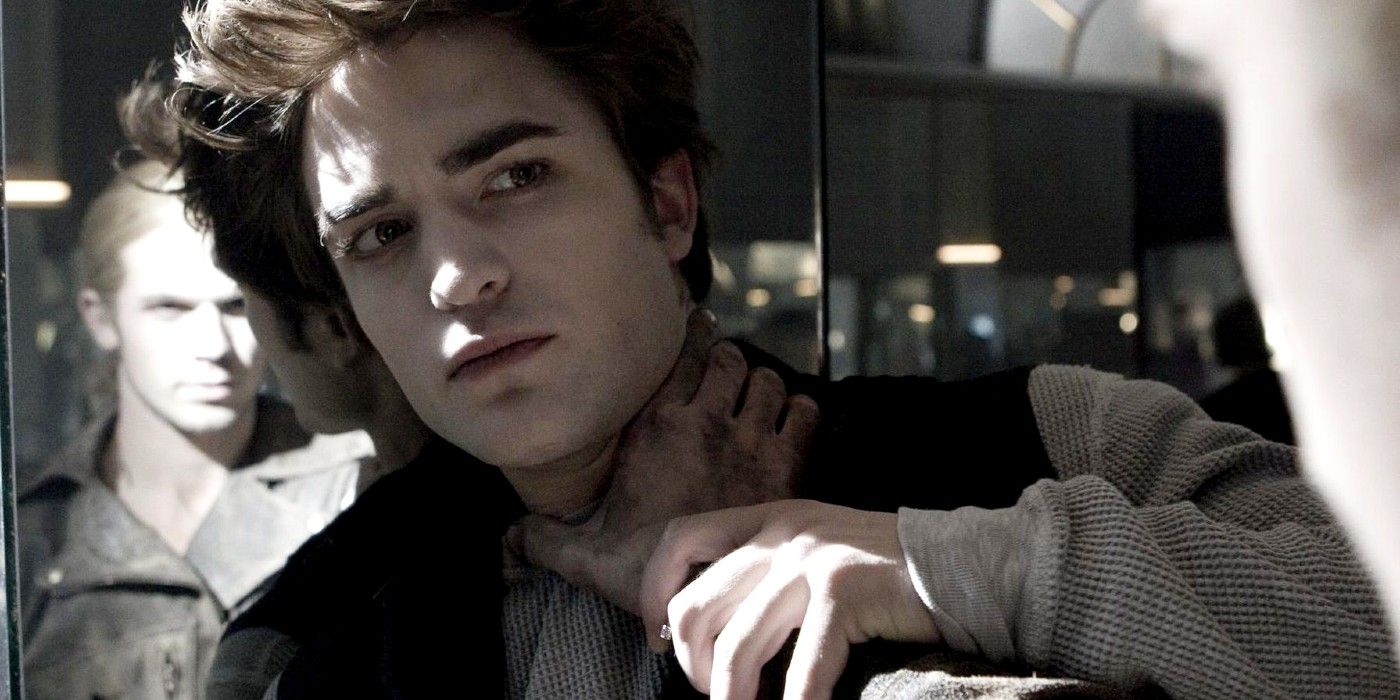
In the Twilight adaptation that viewers saw in cinemas, Bella is slowly introduced as she moves to Forks and adapts to small-town life. Only then do viewers learn about Edward and the Cullen family as Bella begins a tentative romance with her classmate, and it’s not until the film’s third act that the villainous coven of vampires who make up the movie's antagonists come into focus. In contrast, the original script of Twilight features Bella sitting down to dinner with Twilight’s villainous gang of murderous vampires within a few pages of its opening, with the character being more of a Buffy/Blade-style vampire hunting action heroine than the average teen of the finished Twilight films. It seems nigh-on impossible that the movie could have maintained Bella’s relatable status as a normal teenager caught up in an insane adventure judging by this description provided by Hardwicke, and odds are the series as a whole would have become more of an action-adventure than a small-town mystery.
Reaffirming the certainty that this original script’s version of Twilight was more akin to Buffy The Vampire Slayer than the original saga is the fact that the movie’s vampires were being hunted by none other than the FBI. The image of suited secret agents on the trail of vampires is a far cry from Meyer’s small-town love story, but Paramount’s Twilight script saw Bella teaming up with both the “good” vampires like the Cullens and the feds to take on the movie’s villains. It’s not clear from the little that is known about the Paramount script for Twilight whether Bella began the movie working for the FBI or gradually came to side with them throughout the action, although the description of her sitting down to dinner with villainous vampires early on suggests that Bella may begin the movie as an active FBI asset working to uncover vampires (a statement that encapsulates just how much this script mischaracterized the mild-mannered wallflower of the Twilight novels). However, the heroine needed a motivation to hate the villains, and it originally came from an interesting source.
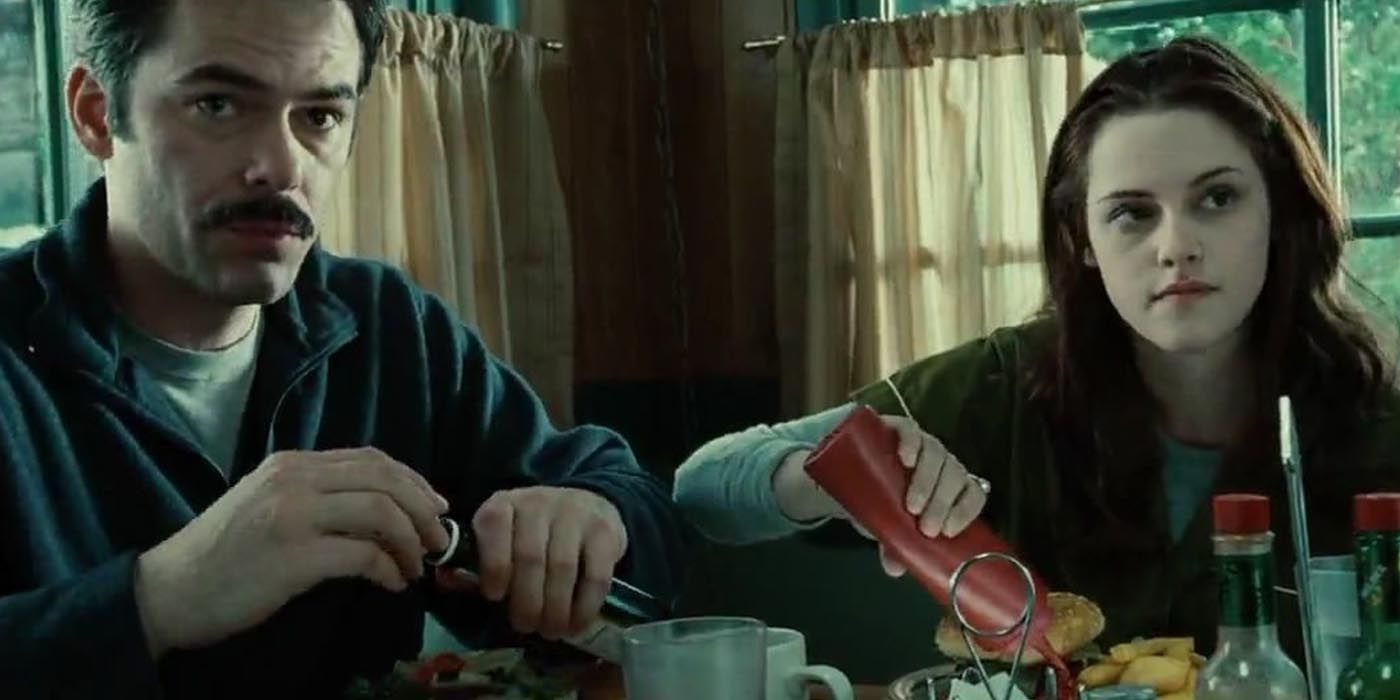
A beloved fan favorite, Charlie Swan is the deadpan dad of series star Bella Swan and, although he’s not a central character in the movies, Billy Burke's patriarch is always on hand with a quip and likably inept attempt at parenting. Since he doesn’t play a particularly big role in the Twilight saga, Charlie survives until the end of the Twilight movies and novels and eventually even gives his blessing to the marriage of Bella and Edward in Breaking Dawn. In the Paramount treatment, however, the character was callously killed off solely so Bella could have a dramatic motivation to take on Twilight's villain vampires. It’s a bizarre addition that shows how egregiously the original script misread the character of Bella Swan, turning an average highschooler into a tortured action heroine.
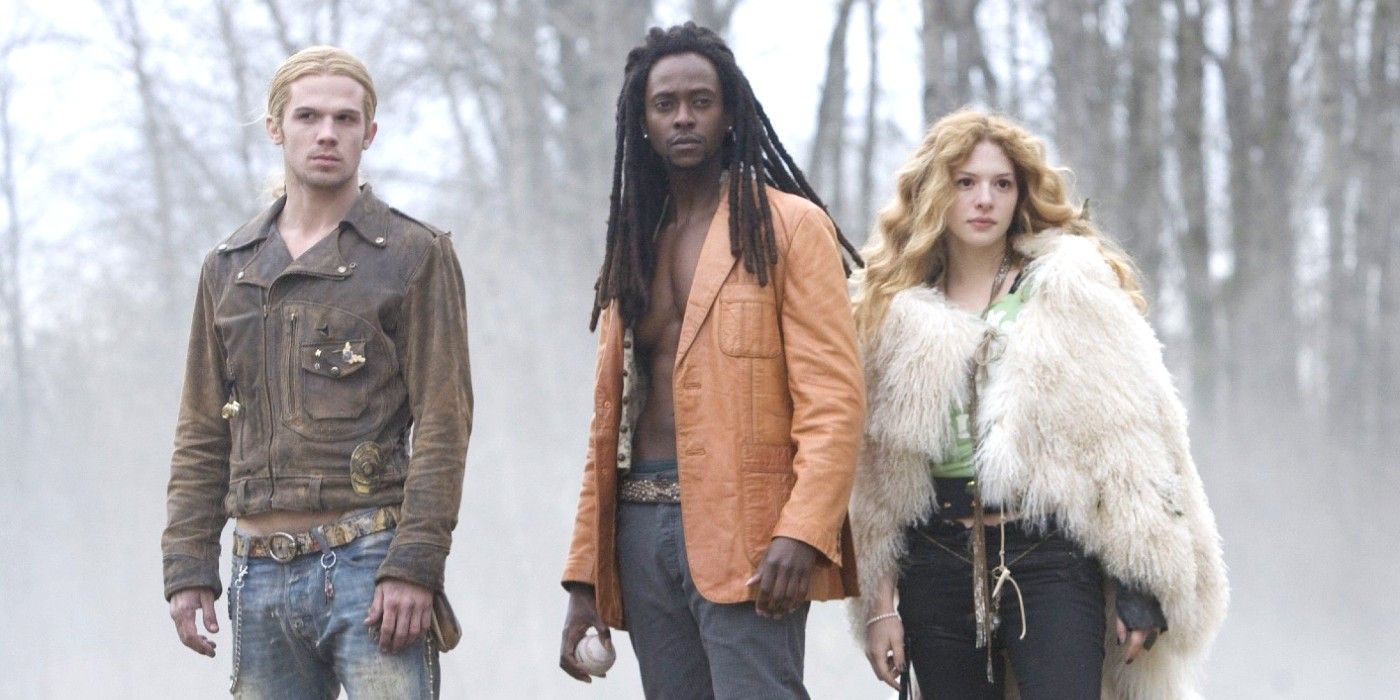
As outlined above, Paramount’s nixed iteration of Twilight was much more action-forward, so it’s no surprise that in its escalating action Bella became a vampire by the end of the first film, rather than waiting until Breaking Dawn as is the case in the novel canon's version of events. Not only that, instead of the small rural community of Forks being the setting of the first film’s action, the globe-hopping action of this original Twilight script saw the feds chasing Cam Gigandet’s villain James and his killer vampire gang from Canada to Mexico, and even eventually onto the ocean aboard jet skis. Luckily, Hardwicke was intrigued enough by this surreal action-adventure/vampire mashup t0 seek out the original Twilight novels and read the best-selling saga. Once the director was familiar with the source material, she decided to drop the bizarre Paramount script and stage a faithful adaptation of Twilight, resulting in the more grounded and book-accurate movie of Twilight that viewers received in 2008.
https://ift.tt/32M7UUs
April 25, 2021 at 04:57AM




